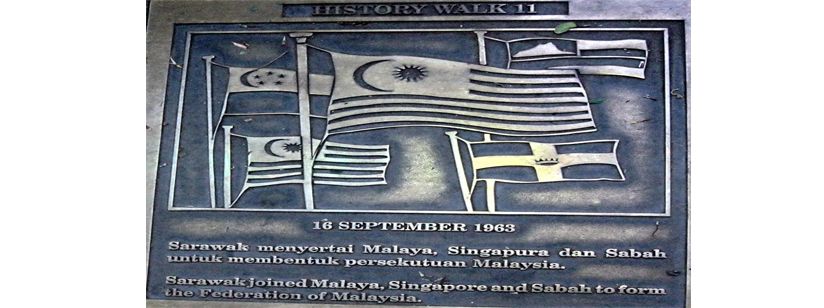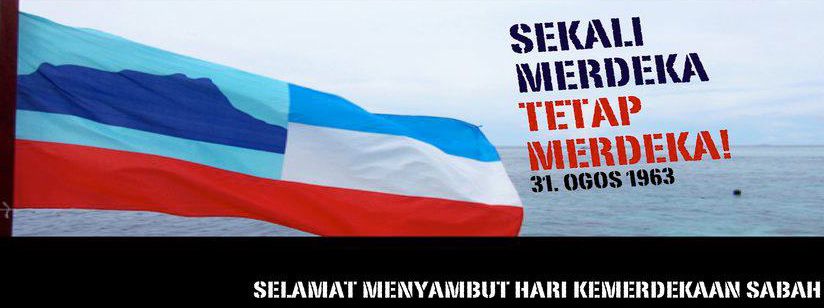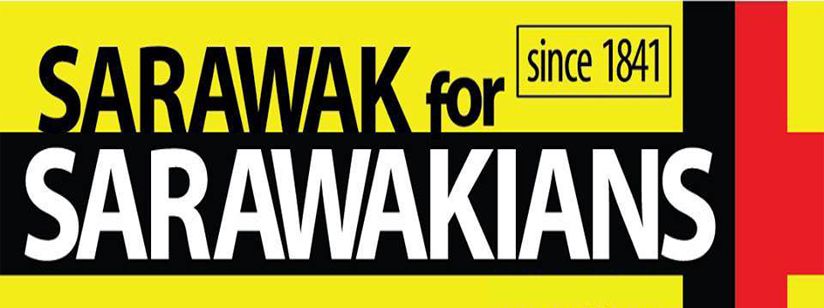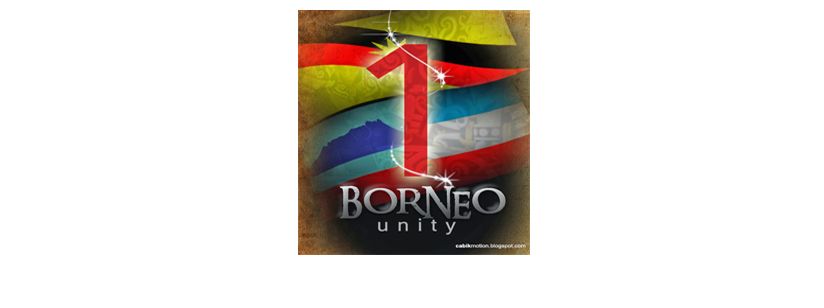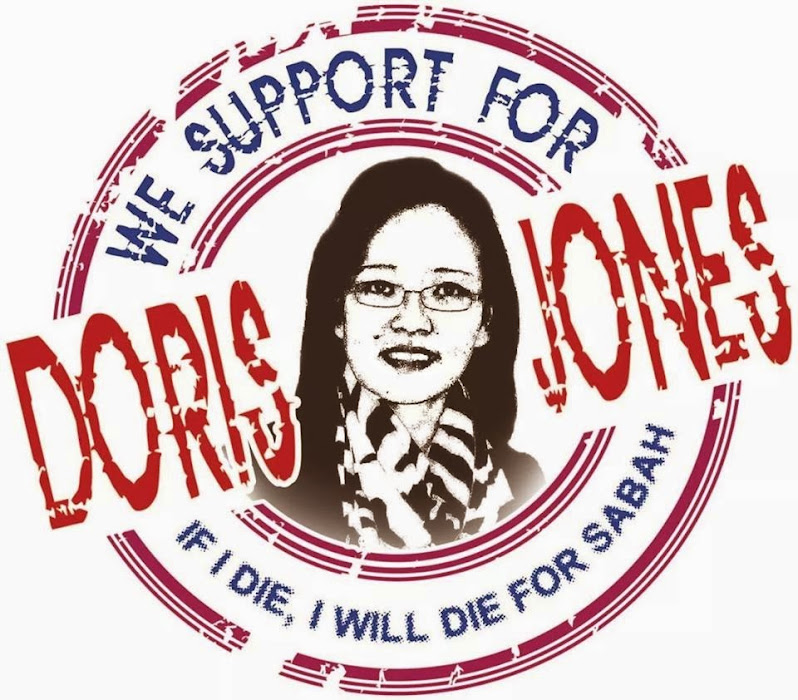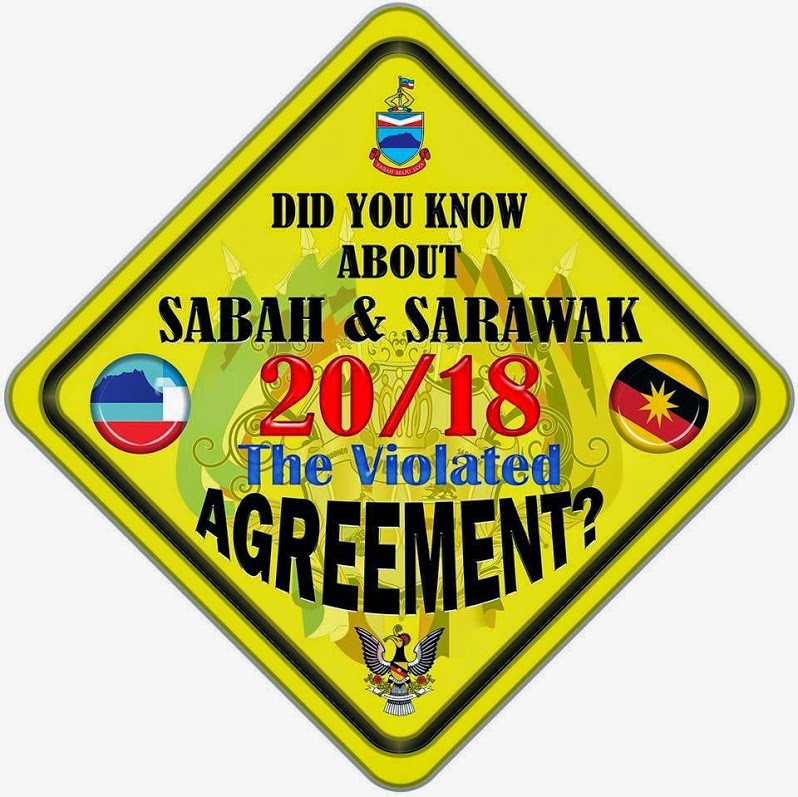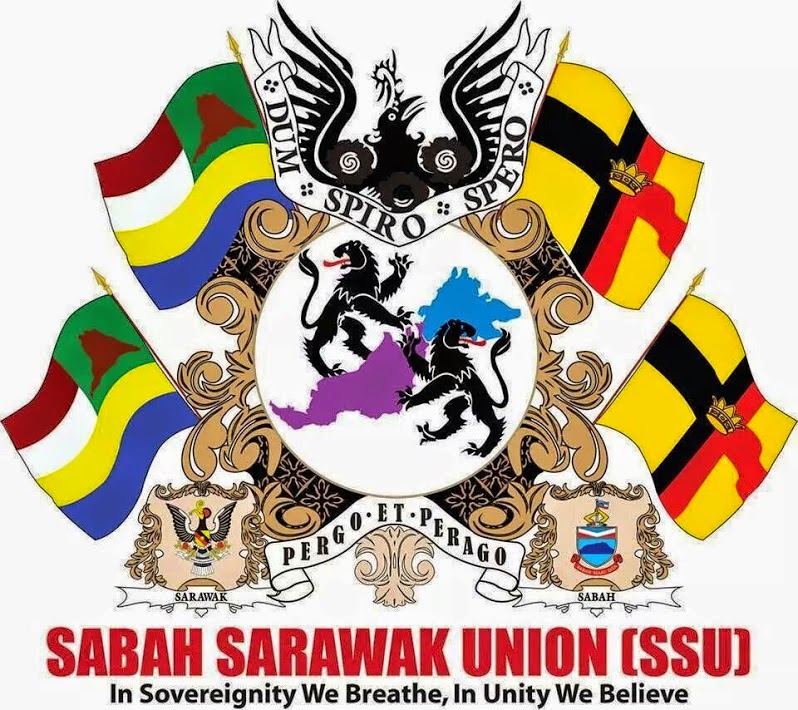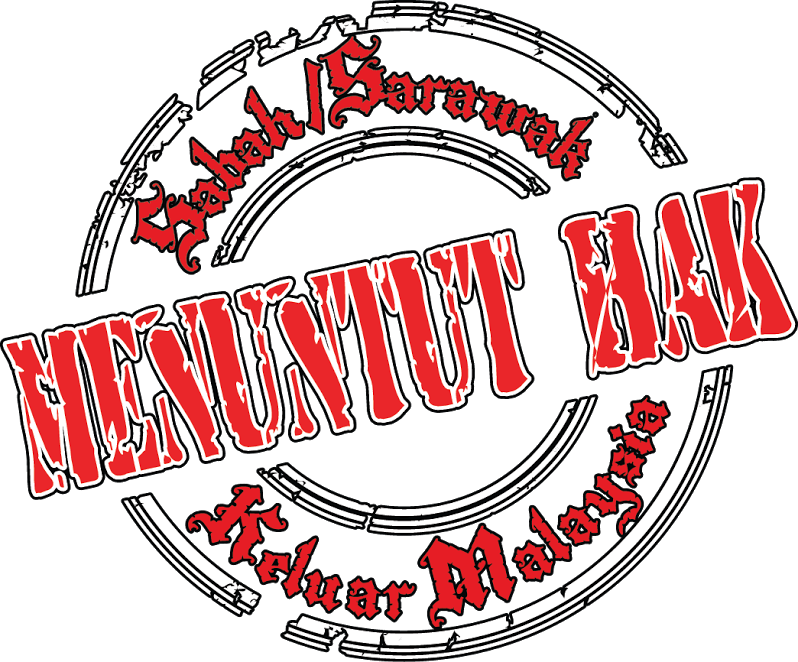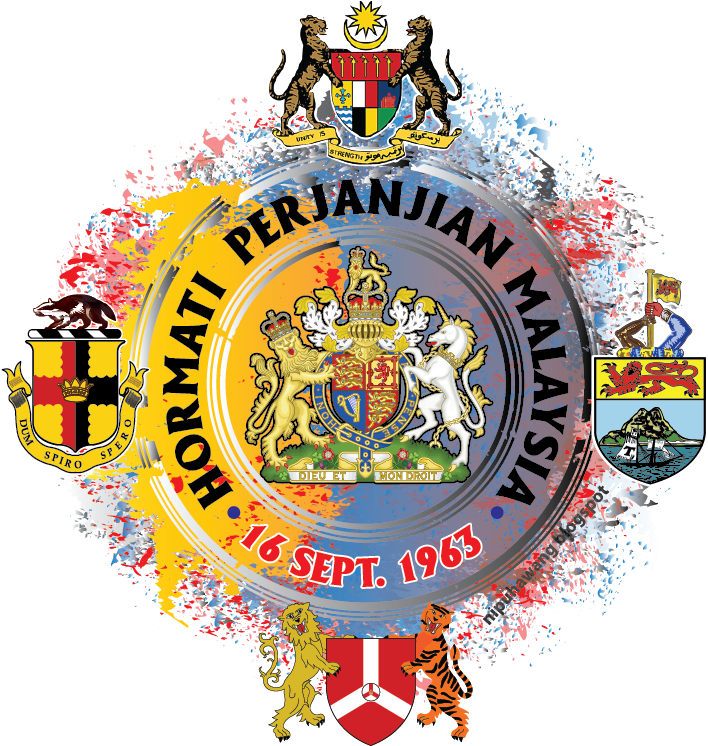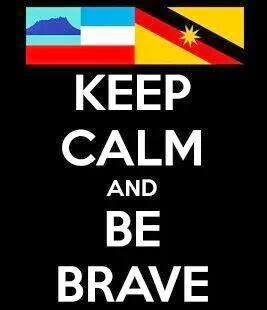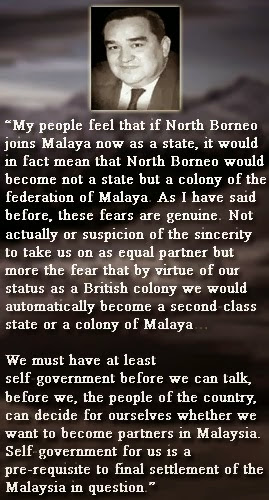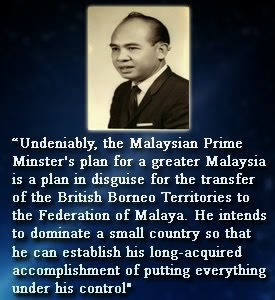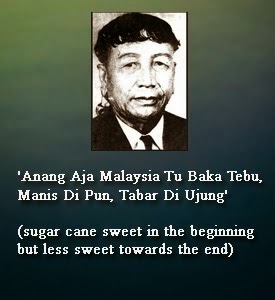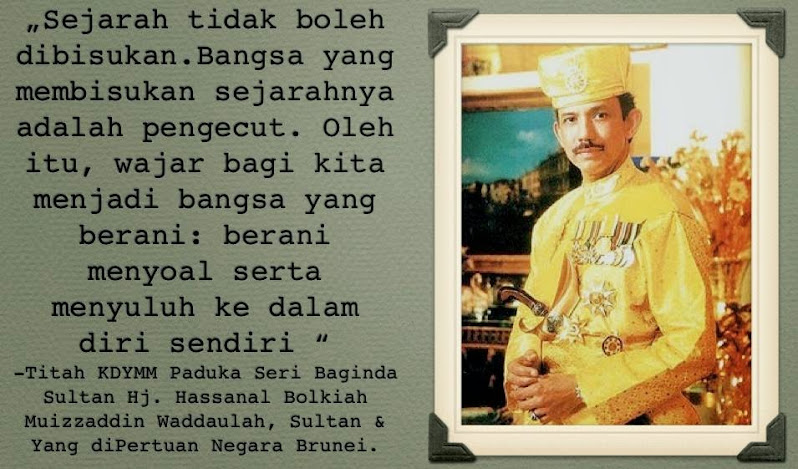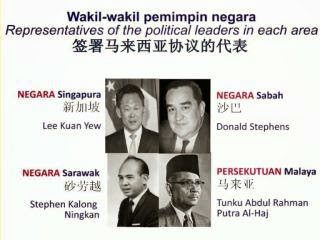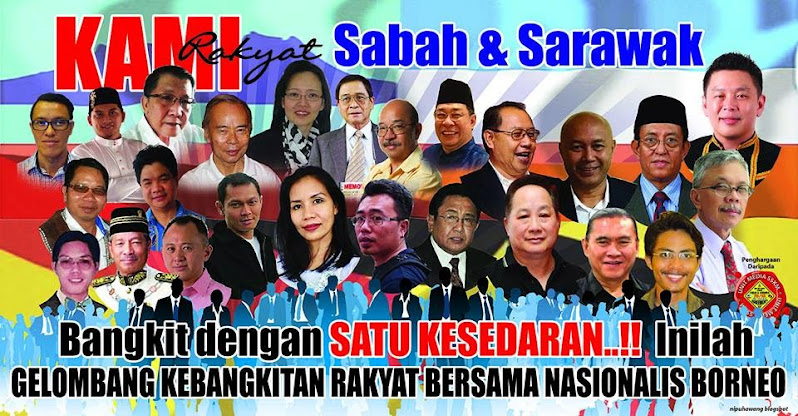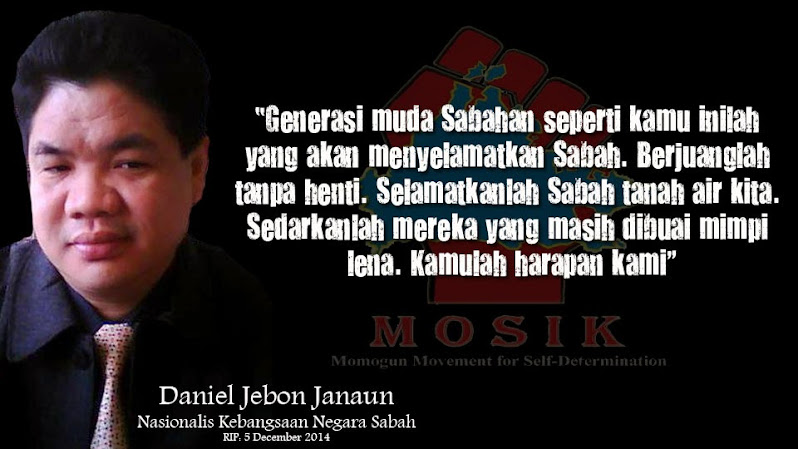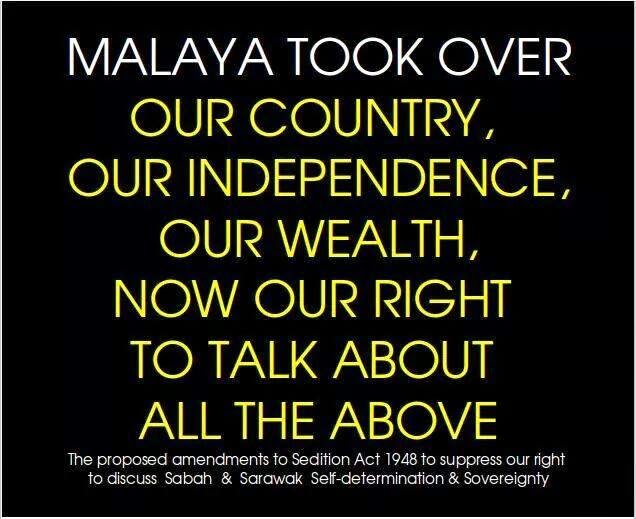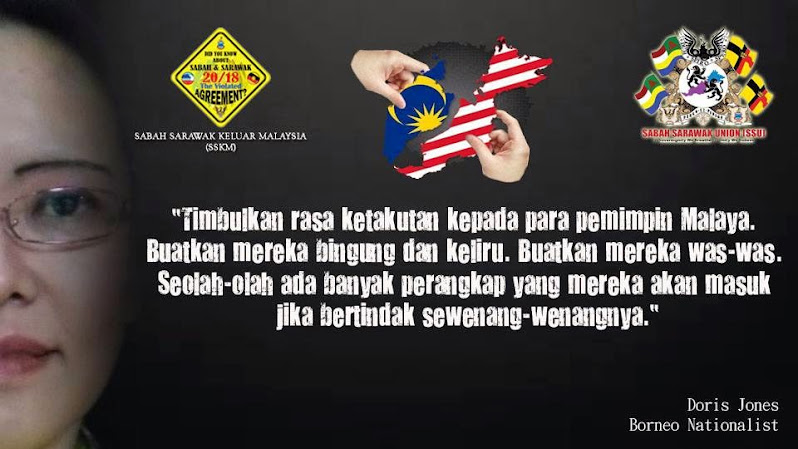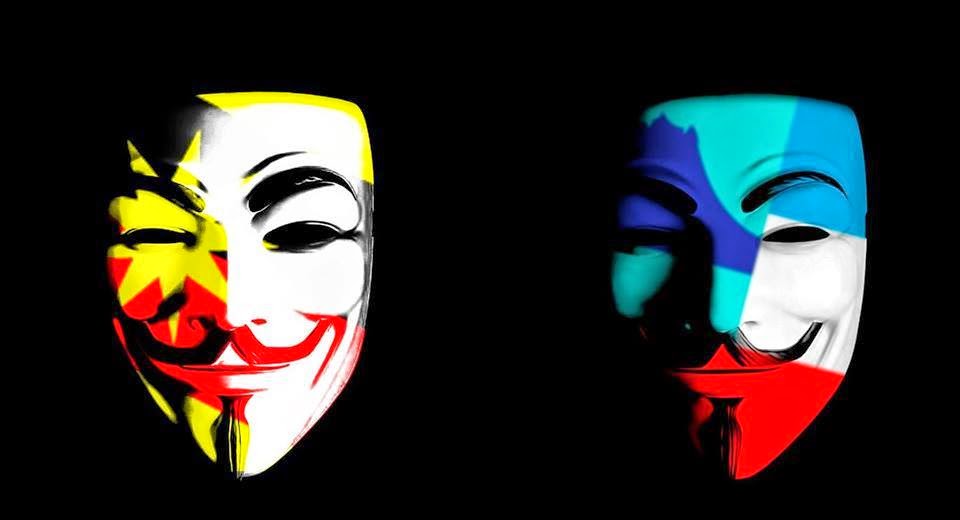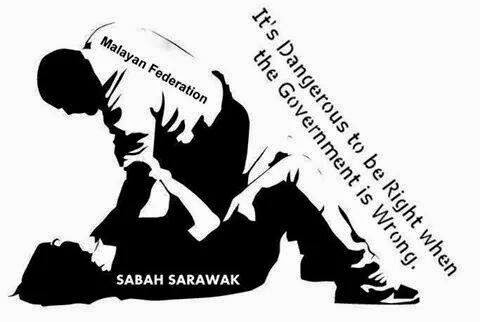Monday 23 February 2015
Monday, February 23, 2015
Doris Jones
,
Exposing the Truth
,
Fact
,
Nationalist
,
Sabah
,
Sabah Sarawak Union (SSU)
,
Sarawak
,
SSKM
No comments
Sabah activist dares authorities to extradite her
Alleged secessionist has no intention of returning to Malaysia to face possible sedition charges.
PETALING JAYA: Doris Jones, wanted by local authorities for promoting secession of Sabah and Sarawak from Malaysia, issued a dare to the authorities to utilise the proper channels to get her extradited back to Malaysia to face sedition charges.
She made it clear that she has no intentions of returning on her own accord.
Jones, accused of invoking secessionist sentiments via social media, through the Sabah Sarawak Keluar Malaysia (SSKM) page on Facebook reportedly told The Star that she was not aware of any summons from the authorities which lead to an arrest warrant issued by the Kota Kinabalu magistrate’s court.
While refusing to disclose her exact location at the time, Jones said, “They can try to get me in the United Kingdom, the European Union (EU) or maybe even Australia. They can try.
“I don’t think Malaysia has any extradition treaties with the EU,” said Jones.
Jones also spared details about herself and refused to acknowledge if she was still a Malaysian citizen.
“I don’t want to answer that. I am from Sabah,” she said.
The wanted activist is believed to be based in London and according to her, also contested in the May 2014 European Parliament election, on a UK-based National Liberal Party ticket.
Earlier this month, 14 activists linked to the secession movement were arrested in Tuaran and Kota Kinabalu, but have all been released on bail.
The stabbed governor of Sarawak
 |
| Duncan Stewart was killed several weeks into his governorship |
Previously secret documents show British officials covered up evidence about the assassination of a colonial governor in East Asia after World War II, fearing the truth might spark a war. But this, it seems, left an unjust stain on the reputation of a British man from a family of so-called White Rajahs.
In December 1949 the new governor of the recently acquired British colony of Sarawak was on his first official tour. Among Scotsman Duncan Stewart's previous postings was Palestine - one of the most dangerous in the world at that time. After that, it was thought he would have little to fear in the comparatively sleepy backwater of Sarawak, on the island of Borneo.
After a couple of weeks in the job, he went to the town of Sibu on his first official visit. He was welcomed warmly by a large crowd, who all seemed to be enjoying themselves, according to press reports of the day.
After inspecting a guard of honour, he walked on flanked by a gaggle of excited school children. Then a youth walked towards Governor Stewart holding a camera and asked to take his photo. As his Majesty's representative prepared to pose, another youth stabbed him.
Officials quickly grabbed the two youths and arrested them.
Despite suffering a deep stab wound, Governor Stewart is reported to have carried on for a while, as if the murderous assault hadn't happened. But when blood began to seep through his starched white uniform he was rushed away for treatment. He died a few days later, after being flown to a hospital in Singapore.
Two local Malay youths, Rosli bin Dobi and Moshidi bin Sedek, were tried for murder and later hanged. Both were thought to be members of a group dedicated to restoring Anthony Brooke, heir-elect of a British family of so-called White Rajahs, to the throne of Sarawak. The "anti-cession" movement objected to the decision to cede Sarawak to the British.
 |
| Anthony Brooke died in 2011, never officially told the assassination had nothing to do with him |
The Brookes had ruled this northern slice of the island of Borneo since the mid-19th Century. It had been given to Anthony's Great Great Uncle James by the then Sultan of Brunei, after the Victorian adventurer had quelled a revolt for him.
It was then run as a virtually independent and apparently benevolent kingdom by the Brooke family. The interests of the varied local tribal groups were, it seems, well protected by the Brookes as commercial pressures grew following an influx of investors and businessmen.
But, finally, in July 1946, Sarawak became Britain's last colonial acquisition. It was handed over to the British crown by Anthony Brooke's uncle, Charles Vyner Brooke, in exchange for a £200,000 pay-off.
 |
| Charles Vyner Brooke in Sarawak in 1946 |
But Anthony Brooke, who had been expected to take over as White Rajah of Sarawak, was not happy about this.
Neither were many locals. Even though his family were as British as the new colonial masters, they had become part of the local fabric, unlike the pith-helmeted rulers from far away.
Demonstrations, arranged by each Kampong (village community) greeted the first governor, Sir Charles Arden Clarke, on his arrival in Sarawak in 1946
 |
| Protests spread from village to village |
Numerous anti-cession protests were held. Placards called for a return to White Rajah rule led by Anthony Brooke.
So when the British governor was killed, suspicions naturally fell on him as the leader and focus of the anti-cession movement. Was he involved in the assassination plot as part of his bid to win back power? British officials left that looking a distinct possibility - but they knew more than they let on.
"That's not what the British government believes at all," says historian Simon Ball, of Glasgow University, who has extensively researched the case.
Indeed, evidence shows the ringleaders of the assassination plot were not acting for Anthony Brooke, nor did they have any intention of returning him to power. Instead, in a letter discovered by Professor Ball, written by one co-conspirator to the other, they make clear their intentions of helping neighbouring Indonesia to take over British Sarawak.
"What they want is freedom as part of Indonesia. So this is the underlying political motive for the killing. It's not to support [Anthony] Brooke."
_______________________________________________________
BBC Radio 4's Document is on at 20:00 GMT on Monday 12 March
Or listen again after broadcast on iPlayer
Radio 4: Document
_______________________________________________________
The British it seems, feared that to confront Indonesia with its involvement in such a plot might spark an unwelcome conflict. The newly independent nation had just driven out Dutch colonial troops by force, and the UK already had its hands full dealing with insurrection in British-run Malaya to the north-west.
So they decided to keep quiet about the fact that this had little to do with Brooke's supporters and a lot to do with an anti-colonial independence movement. In a letter marked "confidential", John Higham of the Colonial Office wrote to a colleague in the Foreign Office. "We have now come to the very definite conclusion that the publication of the correspondence would be dangerous and that it would be undesirable to show it to Anthony Brooke."
The Superintendent of the local Special Branch wrote two weeks later: "There is no evidence or suspicion that AB [Anthony Brooke] knew of the intention to assassinate H.E. [His Excellency] The Governor."
But despite all this, the finger of blame for the death of Governor Duncan Stewart was left pointing at Anthony Brooke, who was never officially told that his anti-cession campaign had little to do with the assassination.
A year later he formally gave up his claim to the Sarawak throne and travelled the world as a self-appointed peace ambassador, before settling in rural New Zealand where he died, aged 98, last year. His grandson, Jason Brooke, says it is distressing that his grandfather went to his grave not knowing the truth.
"I think it was very, very difficult for Anthony, the way he was landed with these… more than implications, almost accusations, of having at least a moral responsibility for what had happened to Duncan Stewart. It's sad, but that's history."
Document will be broadcast on Monday 12 March at 20:00 GMT on BBC Radio 4.
Oil prices are really low nowadays. Why? Let us find it out
Reasons for the crisis
We have decided to get back to basics of this crisis to begin with. As some of us probably remember, oil prices have begun to fall since July-August 2014. During our searches we have found an article written by Forbes’ contributor Thomas Landstreet. The piece was published on August 20th, when the general trend had already been tangible and oil price had almost touched the psychological point at $90 per barrel. However, this point was known as resistance level for the fossil’s price, so there still was a little hope that price would go up. But Thomas is an experienced analyst. Moreover, he saw how strong oil prices and actions of governments are tied together. So, in his article with the descriptive title: “Here Comes Cheaper Oil: Why Prices Are Set To Fall” - he predicted that prices would be as low as $90 by Christmas eve unless some crisis in geopolitics happened. The crisis occurred. Actually it was already there when the article was issued, so shame on you Thomas. Anyway, the prices are falling and falling significantly. As of this writing the oil costs almost $74 per barrel, which is the lowest price since August 2010. In any case, let us emphasize the main reasons of falling according to Landstreet.Firstly, political reforms towards liberalization of Mexican economy enacted by the country’s president Enrique Pena Nieto in 2013. These reforms have lead to opening Mexican energy markets to foreign and private companies. The connection is obvious. It is much cheaper to extract oil in Mexico than to make fracking in the US for example.Secondly, Thomas was predicting that if the republicans won the midterm elections, the process of liberalization of oil industry in the USA would be accelerated. And, he was right. Republicans have won and now the oil-producing industry has an access to chip extraction of fossils at US Atlantic coast.Thirdly, gasoline in US costs too much, which is actually a reason to liberalize oil-industry in states to make fuel cheapen. This process in its turn has an effect on oil prices, because producing becomes cheaper too. Also, some analysts claim that OPEC members are not cutting production and knocking crude prices down in order to throw US shale projects out of the market. But it sounds like another conspiracy theory. Talking about the reasons that caused falling of crude prices, we cannot avoid mentioning the article written by Matthew Philips for Bloomberg’s Businessweek. He claims, and it is absolutely sound, that oil supply has risen but demand is significantly decreasing at the same time. Namely, stagnation of European economy and deceleration of growth in China. Also, unwillingness of OPEC countries to reduce oil production makes crude prices to fall. All of them, excluding Saudi Arabia, are producing as much as they were during last years. Moreover, Libya and Angola have even increased oil extraction.
Is it an actual crisis?
Not really. First of all, we have too much oil, meaning enough to satisfy our demand in this fossil fuel. Secondly, there are only three countries that will be strongly affected by low prices: Brazil, Mexico and Venezuela - mostly because of their short-sighted policy regarding savings from oil sales. Other big players of the oil-industry such as Russia or Middle East countries will be affected but not very strongly, because they have gained a lot from oil last years.
What are the effects?
The effects are obviously negative for the industry; however they are still good for the global economy. Why? In most countries of the world cheaper crude means cheaper gasoline. This trend will allow regular consumers to save a lot on fuel, and they will start to spend these savings on consumption of goods. Note, that winter holidays are coming and for most of us it is a signal to buy more, which we will definitely do. Besides, according to Business Insider companies from Standard & Poor's 500 index will benefit from low oil prices in 2015; so, $10 drop in Brent price will make these companies benefit from $2 to $145 per share. Also, here is an infographic based on Goldman and Sachs report that shows how other markets benefit from oil industry crisis.
What are the steps being taken to stop prices from falling?
The OPEC meeting was held on November the 27th where the members of the organization have decided not to cut production in order to bolster prices. The similar situation happened in the 1980’s; the only OPEC member that cut production that time was Saudi Arabia; now they are not going to do it alone so as to not lose their market share. “Saudi Arabia has definitely made it clear that defending the oil market is a collective responsibility, and no member country should expect Saudi Arabia to swing alone” - resolutely claimed the former aide to Saudi oil minister, Mr. Naimi. At the same time, other OPEC members such as Nigeria and Venezuela with weak economy will incur significant losses from production cut, so they also will not do it. So, the prices are set to fall.
Sunday 22 February 2015
Sunday, February 22, 2015
Doris Jones
,
News
,
Sabah Sarawak Union (SSU)
,
Sharing
,
SSKM
No comments
What Interpol hunt? asks Sabah secession protagonist Doris Jones
KOTA KINABALU, Feb 21 — Doris Jones, the woman wanted by Malaysian police for allegedly masterminding the Sabah and Sarawak secessionist movement is unfazed by the headlines that Interpol will now be roped in to hunt her down.
Jones, in a phone call from an unknown number to Malay Mail Online said that she has not heard anything from Interpol or the Malaysian police about the warrant of arrest for her apart from what she has read in news reports here.
“I’m not sure what they’re talking about. No one had contacted me regarding the arrest. But I know it won’t be easy as they will need to get police cooperation here and they will need to go to court for it,” she said.
She dismissed any threat of imminent arrest, saying she has nothing to be afraid of as she has not committed any crime.
Jones, said to be behind a controversial social media movement called Sabah Sarawak Keluar Malaysia or SSKM, said she is working under a United Kingdom-based non governmental organisation called Sabah Sarawak Union.
SSKM is only its social media name, she explained.
She added that she is currently in Europe, but declined to reveal further details about herself, although she said she travelled to Malaysia as recent as last year and was trailed by the police then.
“I went back as recent as last year, and in 2013, I spent about three months at home, meeting friends, villagers and getting people aware of our campaign and build contacts,” said Jones, who speaks with a heavy English accent.
Sabah state police commissioner Datuk Jalaluddin Abdul Rahman said last week that a warrant of arrest has been issued for a 46-year-old Doris Yapp Kim Youn from Labuan.
Speaking to The Star Online earlier this week, Jones would not confirm if she is the same person named in the arrest warrant.
Yapp, according to reports, is widely believed to be a paralegal based in London who had contested in the May 2014 election for the European Parliament via the United Kingdom-based National Liberal Party on a platform of “self-determination”.
To date a total of 14 local volunteer activists working for Jones’ SSKM movement have been arrested in Tuaran and Lahad Datu for purportedly promoting secession by seeking signatures for a petition to review the 1963 Malaysia Agreement.
Explaining the campaign, Jones said it had first started out as merely an online campaign.
“But we needed to reach places without internet, which is most of Sabah, so our volunteers suggested we take our cause to the public,” she said.
“We do not force, people have to willingly want to put their name down. I can’t see how this is against the law,” Jones added.
She said she has been following the sequence of events in Sabah from where she is currently located.
“I will not abandon them, and continue to provide legal advice,” she said, adding that the sentiment will keep on growing and more and more native Sabahans and Sarawakians were joining the cause.
“The Sabah today is not the same as the Sabah I knew from 40 years ago. Some still pander to the federal government but many more are now willing to stand up and demand their rights as enshrined in the Malaysia Agreement,” she said.
“If they feel they are not heard, what choice are they left with, but to leave?” she added.
The SSKM movement shot to fame last year when a police report was lodged by a non governmental organisation demanding police investigate the act of treason.
The movement’s Facebook page gained more traction and today sees nearly 32,000 “Likes”, mostly from Sabah’s rural youths.
Tuesday 17 February 2015
Pemimpin-Pemimpin Negara Sabah dan Negara Sarawak yang Menyokong Akta Hasutan Adalah PENGKHIANAT dan PENJAHANAM Bangsa Borneo!
Disini, pihak kami ingin membawa rakyat Bangsa Negara Sabah dan Bangsa Negara Sarawak untuk bersama-sama mengenal pasti pemimpin-pemimpin manakah yang ingin menjadi pengkhianat bangsa Negara Sabah dan Negara Sarawak.
Nama mereka pasti akan dikenang selamanya sebagai PENJAHANAM Bangsa kerana telah bersekongkol dengan malaya agar suara Kebenaran Bangsa Borneo didiamkan oleh akta Penjajah British yang sebenarnya hanya terguna pakai di malaya. Akta ini juga adalah akta yang dikecam oleh masyarakat antarabangsa.
Penggunaan Akta Hasutan adalah untuk kepentingan kelangsungan umno-bn dalam mendiamkan mana-mana pihak yang berpotensi untuk mengugat kedudukan malaya di Borneo melalui bn-umno.
Dengan itu, pihak SSKM-SSU(UK) telah menyediakan poster untuk anda semua download, print dan nilai sendiri dalam mengenal pasti siapakah Pengkhianat dan Penjahanam Bangsa Borneo di Negara Sabah dan Negara Sarawak.
Selepas itu, anda putuskan dimana undi yang ingin anda berikan semasa pilihan raya nanti... Adakah masih orang yang sama (pengkhianat dan penjahanam) ataupun orang baru (Pemimpin Baru)?
Sila download poster diatas melalui link ini untuk mendapatkan imej yang lebih jelas dengan kualiti gambar yang tinggi.
Sila sebarkan gambar poster ini. Bersama-sama kita mengenali pengkhianat-pengkhianat dan Penjahanam-penjahanam Bangsa Negara Sabah dan Bangsa Negara Sarawak.
Apa yang pihak kami lakukan adalah untuk menyebarkan kebenaran dan menuntut hak mutlak bangsa Negara Sabah dan bangsa Negara Sarawak dikembalikan semula namun mereka berusaha untuk mendiamkan dan membunuh kebenaran ini daripada terus berkumandang di udara. Ini kerana kebenaran ini PASTI akan melenyapkan segala usaha jahat mereka.
Jadi, dimanakah pendirian anda? Berjuang bersama-sama (Join The Fight) atau Menentang perjuangan ini (menjadi pengkhianat bangsa)?
Sebarkan...
Monday 16 February 2015
“Jika Sabah adalah sebuah negara yang merdeka, maka ia akan menjadi pengeluar ketiga terbesar di dunia bagi minyak kelapa sawit…”
Sepanjang perjalanan merentasi daerah Telupid dan Beluran, pemandangan kami mulai disajikan dengan sebuah pemandangan tumbuhan yang menghijau yang seakan akan sebuah pemandangan hutan belantara hijau di setiap lereng-lereng bukit dan juga tanah rata. Namun demikian, sangkaan kami melesat sama sekali kerana tumbuhan yang subur menghiasi kiri kanan perjalanan kami itu adalah tanaman kelapa sawit.Gambaran pemandangan ladang kelapa sawit itu dapat kami gambarkan seperti “jauh perjalanan luas pemandangan”.
Mungkin bagi kebanyakkan mereka yang sudah pernah menjejakkan kaki ke kawasan pantai timur, keadaan kiri kanan perjalanan yang bermula dari daerah Telupid sehinggalah menuju ke daerah Lahad Datu sudah semestinya telah maklum akan situasi keadaan jalan raya yang masih belum dinaik tarafkan kepada lebuhraya,jalan raya yang masih bertampal, serta terdapat jalan ‘gravel’ yang berlaluan kira-kira beberapa kilometer sepanjang perjalanan hendak menuju ke daerah Lahad Datu.
Sepanjang perjalanan dari Telupid ke Beluran, kami sempat mengambil beberapa gambar di ladang kelapa sawit,dan saya difahamkan bahawa kebanyakkan ladang kelapa sawit itu dimiliki oleh syarikat-syarikat gergasi dari seberang tanah semenanjung Malaysia.
Kami juga sempat untuk berhenti seketika untuk memerhati keadaan sebuah kilang pemprosesan kelapa sawit sekadar dari kejauhan, kerana kepulan asap hitam yang diterbangkan di sebalik bukit telah menarik minat kami untuk memahami situasi yang berlaku. Jam kira-kira pada masa tersebut menunjukkan jam 4 lebih petang, mungkinkah kilang-kilang pemprosesan kelapa sawit hanya akan mulakan operasi pada waktu lewat petang dan sebelah malam bagi tujuan untuk menyembunyikan kepulan asap hitam tidak ditapis yang dikeluarkan menerusi cerobong asap kilang?
Berdasarkan perangkaan dan kajian yang telah dibuat, Negara Malaysia merupakan Negara utama di Asia Tenggara yang menjadi penyumbang utama terhadap pencemaran udara. Jerebu yang dihasilkan menerusi pembakaran terbuka bagi proses penananam semula pokok akan menimbulkan masalah kesihatan yang serius kepada pekerja ladang dan orang ramai di seluruh Asia Tenggara .
Selain pencemaran udara , pembakaran hutan mengeluarkan CO2 ke atmosfera dan seterusnya menyumbang kepada perubahan iklim . Penggunaan sembarangan racun perosak dan baja boleh mencemarkan permukaan dan air bawah tanah sumber , dan juga tanah , juga secara langsung boleh membunuh spesies bukan sasaran .
Sikap tamak haloba pengusaha syarikat dari tanah semenanjung Malaysia secara langsung telah meletakkan nyawa rakyat Sabah dalam bahaya. Penanaman kelapa sawit secara berleluasa di Sabah yang memberikan keuntungan berjuta juta ringgit kepada syarikat-syarikat gergasi yang sudah lama bertapak di Sabah. Hilang hak kawalan tanah kepada Kerajaan Negeri Sabah, oleh yang demikian sering kali berlakunya kes rampasan tanah penduduk kampung oleh Syarikat-syarikat dari tanah semenanjung Malaysia.
Saya mulai membuat analisis yang mendalam terhadap situasi kehidupan yang berlaku antara kawasan Pantai Barat Sabah dan Pantai Timur Sabah. Kurangnya pendedahan dan perkongsian sebenar terhadap situasi seharian yang melanda orang-orang asal Sabah di kawasan Pantai Timur. Tidak ada pendedahan ekslusif untuk dikongsikan kepada dunia luar. Situasi masyarakat seakan akan sengaja disembunyikan dari pengetahuan luar.
Saya percaya bahawa jika Sabah adalah sebuah negara yang merdeka , maka ia akan menjadi pengeluar ketiga terbesar di dunia bagi minyak sawit . Timur Sabah telah dikenal pasti sebagai lokasi yang sangat baik untuk kelapa sawit ,khususnya di Tawau , Lahad Datu dan Sandakan.
Menurut Lembaga Minyak Sawit Malaysia ( MPOB ) , pada tahun 2009 , Sabah mempunyai kawasan terbesar penanaman kelapa sawit daripada mana-mana negeri , pada 1.36 juta hektar daripada jumlah keseluruhan negara daripada 4.69 juta hektar (ha) .
Penanaman komersil kelapa sawit di Malaysia bermula pada tahun 1917. Skala besar penanaman hanya bermula pada tahun 1960-an berikutan kepelbagaian tanaman strategi teras Kerajaan Malaysia untuk mengurangkan pergantungan negara terhadap getah . Getah pada masa itu adalah salah satu dari dua rukun ekonomi Malaysia.
Pada tahun 2001 sahaja kawasan penanaman kelapa sawit telah dikenal pasti iaitu , 59.9 % atau 2.096.856 hektar berada di Semenanjung Malaysia , 29.4 % atau 1.027.329 hektar di Sabah dan 10.7 % atau 374.828 hektar di Sarawak .
Dekad yang lalu telah menyaksikan pengembangan yang pesat di kawasan tanaman di Sabah dan Sarawak ; manakala penanaman di Semenanjung Malaysia telah berkurangan kerana ketersediaan berkurangan tanah baru untuk tanaman.
Penyiapan lebuhraya Tawau - Kalabakan pada tahun 2000 meningkatkan nilai ladang kelapa sawit di sepanjang lebuh raya baru di barat Tawau . Kelapa sawit adalah tanaman emas di Sabah dan tulang belakang ekonomi utama Negara Malaysia. Urus niaga untuk ladang kelapa sawit di Sandakan , Tawau dan Lahad Datu merupakan yang paling aktif di Sabah .
Tanah gunung berapi di sekitar Tawau yang ideal bagi koko yang merupakan tanaman tunai pertama Tawau . Dengan penurunan harga koko di pasaran estet koko antarabangsa telah berubah kepada minyak sawit dan hari ini persekitaran Tawau yang agak seragam menyeluruh dengan pemandangan ladang kelapa sawit sejauh mata boleh mencapai .
Adakah selama ini rakyat Sabah dan pemimpin-pemimpin itu sendiri telah memilih untuk terus menerus diperbodohkan oleh mereka? Apakah yang akan terjadi kepada anak cucu dan generasi Sabah akan datang, setelah semua tanah habis dirampas, orang-orang asing mulai berkedudukan tinggi sebaliknya orang-orang asal Sabah ditindas dan hak-hak kita dimansuhkan. Penghapusan senyap yang dilakukan oleh mereka harus disedari ataupun mungkin kelak sudah terlambat sama sekali.
"In Indonesia and Malaysia, what you’ve seen is huge portions of tropical forests, being shredded because of primarily the palm oil industry"
